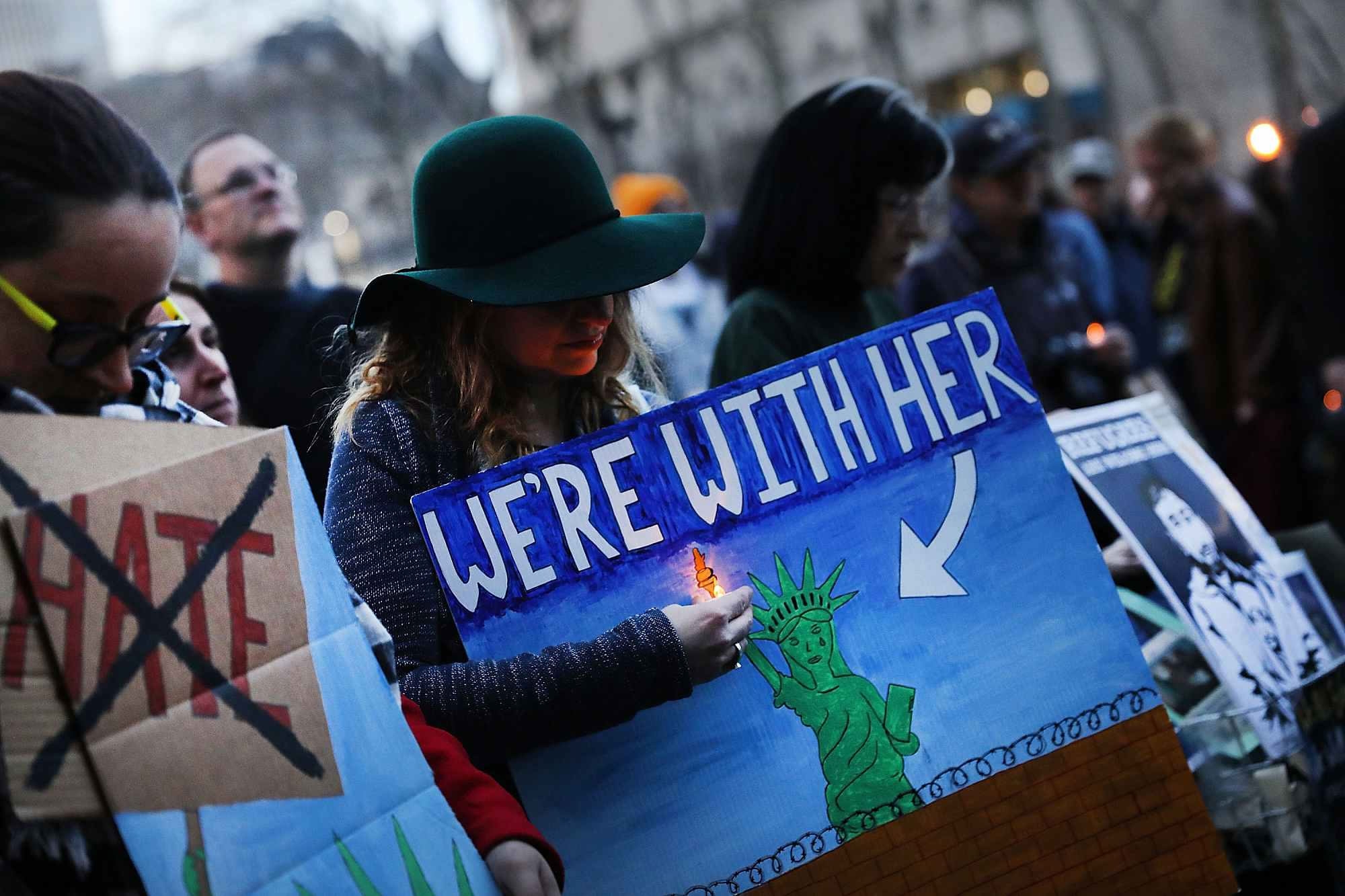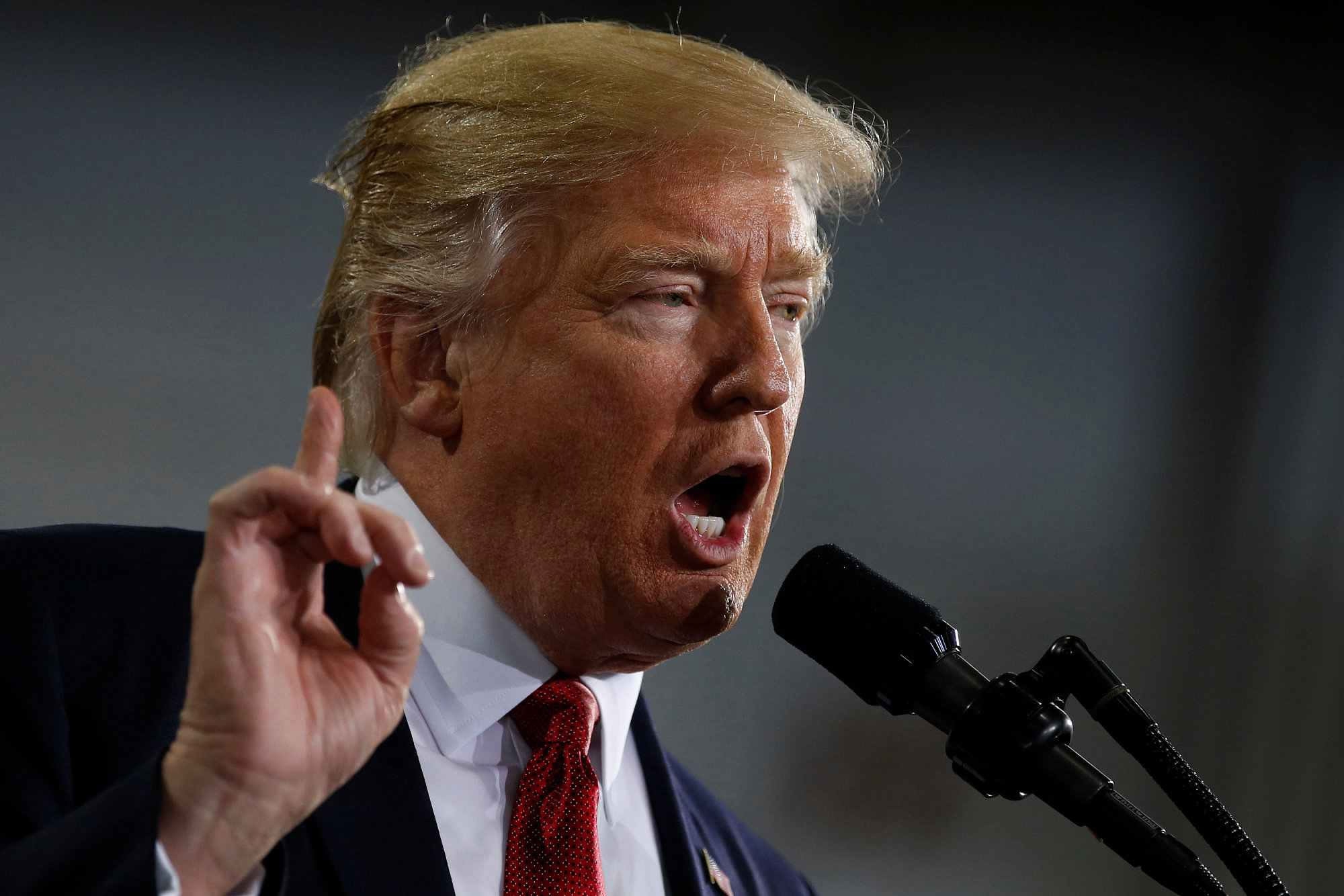Did Donald Trump's contested travel ban deliberately single out Muslims? The Trump administration fiercely denied it during an appeals court hearing Monday -- despite the US president's vocal campaign call for a blanket Muslim ban.
The hearing came as Trump seeks to bounce back from a series of stinging judicial defeats over his controversial effort to bar travelers from half a dozen mainly Muslim countries.
The question of intention is key since the US Constitution forbids religious discrimination. Trump's detractors say it is beyond doubt that Muslims were the ban's intended target, but the administration says it is motivated strictly by national security concerns, an area where US presidents have wide powers.

People attend a rally and vigil at Brooklyn's Borough Hall against President Donald Trump's immigration policies on April 9 in New York. /VCG Photo
Trump "never intended for that to discriminate on the basis of any particular religion," Jeffrey Wall, the US acting solicitor general, told judges of the Fourth US Circuit Court of Appeals in Richmond during an intensely argued afternoon hearing. "He made clear he was not talking about Muslims all over the world," said Wall. "That's why it's not a Muslim ban."
But a lawyer for the American Civil Liberties Union, Omar Jadwat, whose side is supported by several Democratic-led states, argued that throughout the election campaign Trump made clear he wanted to ban all Muslims for a time while studying enhanced immigration vetting.

US President Donald Trump delivers remarks at the American Center for Mobility, a test facility for driverless car technology in Ypsilanti Township, Michigan, on March 15. /VCG Photo
A lower judge's ruling dealt Trump a blow by freezing his second attempt to close US borders to citizens of Iran, Libya, Somalia, Sudan, Syria and Yemen for 90 days.
Given the public importance of the case, the full appeals court in Richmond heard the arguments -- bypassing the usual initial three-judge panel -- for the first time in a quarter-century.
Thirteen of the court's 15 active judges took part. Two recused themselves over potential conflicts of interest, including the conservative J. Harvie Wilkinson, Wall's father-in-law.
The court, once considered the most conservative appeals court in the country, now has nine judges named by Democratic presidents including Barack Obama.
(Source: AFP)
11160km
Related stories:










